Overview
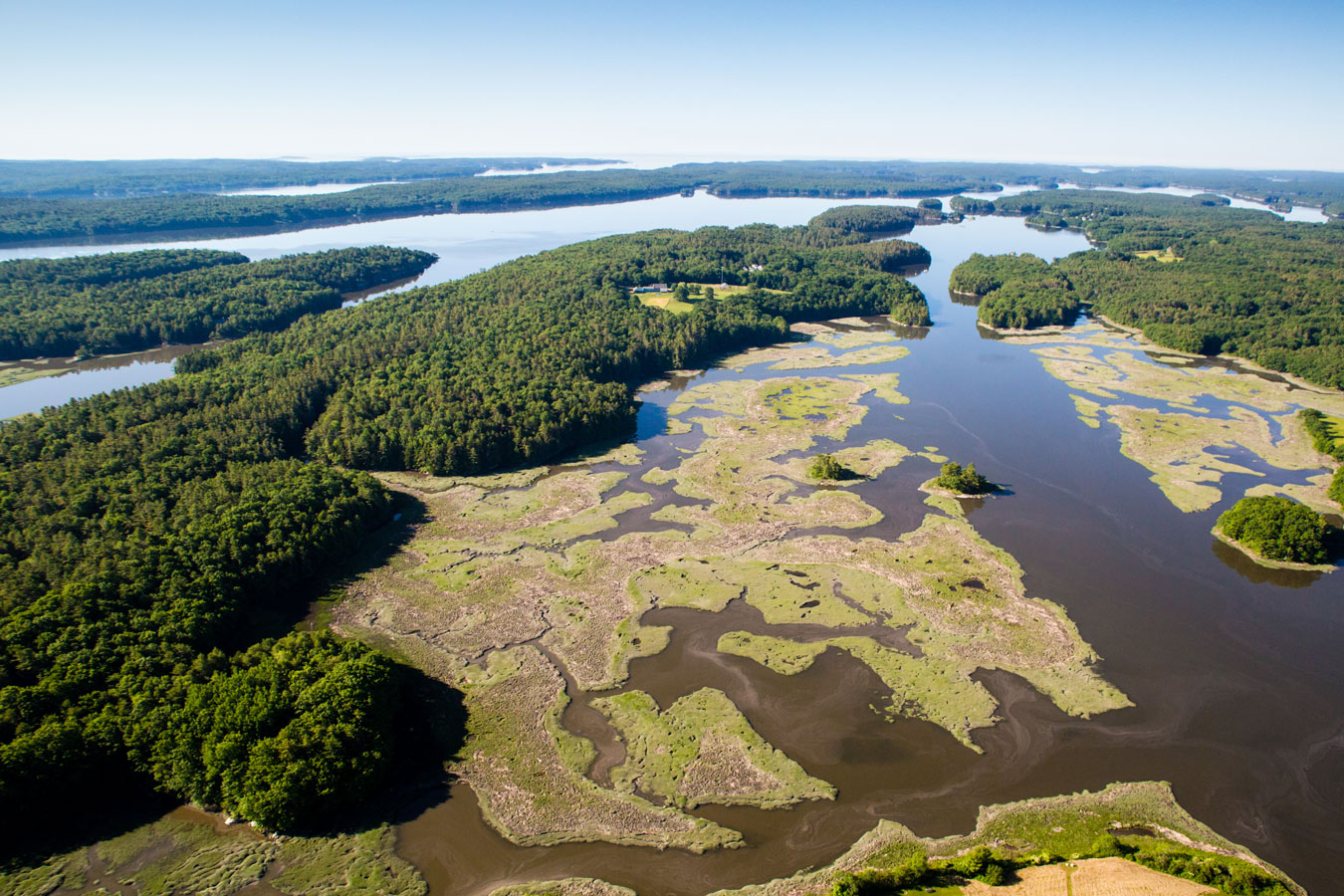
Environmental Education Basecamps
At a Glance
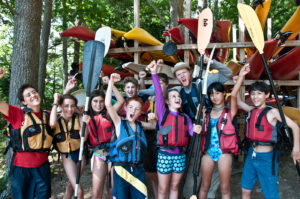 Suggested Grade Range: 5th-9th grade
Suggested Grade Range: 5th-9th grade - Group Size: 10-12 students per basecamp group, up to 130 in total
- Program Length: 4-day 3-night basecamp experience
- Location: Chewonki Campus
- Pricing: $350 per student (grant subsidies and discounts may be available for qualifying schools)
Core Educational Themes
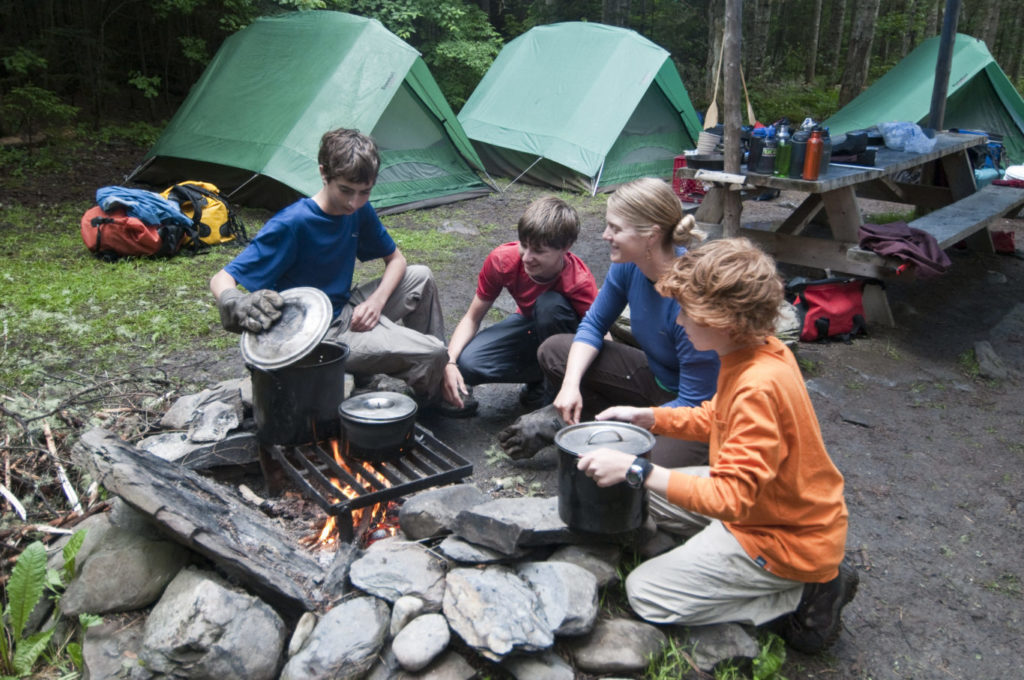
Outdoor Living Skills
Our instructors will introduce students to the fun a multi-day camping expedition at one of the 11 waterfront campsites on our 400-acre campus in Wiscasset, Maine. The experience of outdoor living – camping, cooking over a fire, sleeping in a tent, and exploring the woods and waters of Maine – is the perfect opportunity for students to unplug from everyday distractions and re-engage with the wonders of the natural world.
-
- Camp on the coast of Maine
- Canoe and hike
- Learn to cook over an open fire
- Sleep in tents or yurts
- Learn map & compass skills
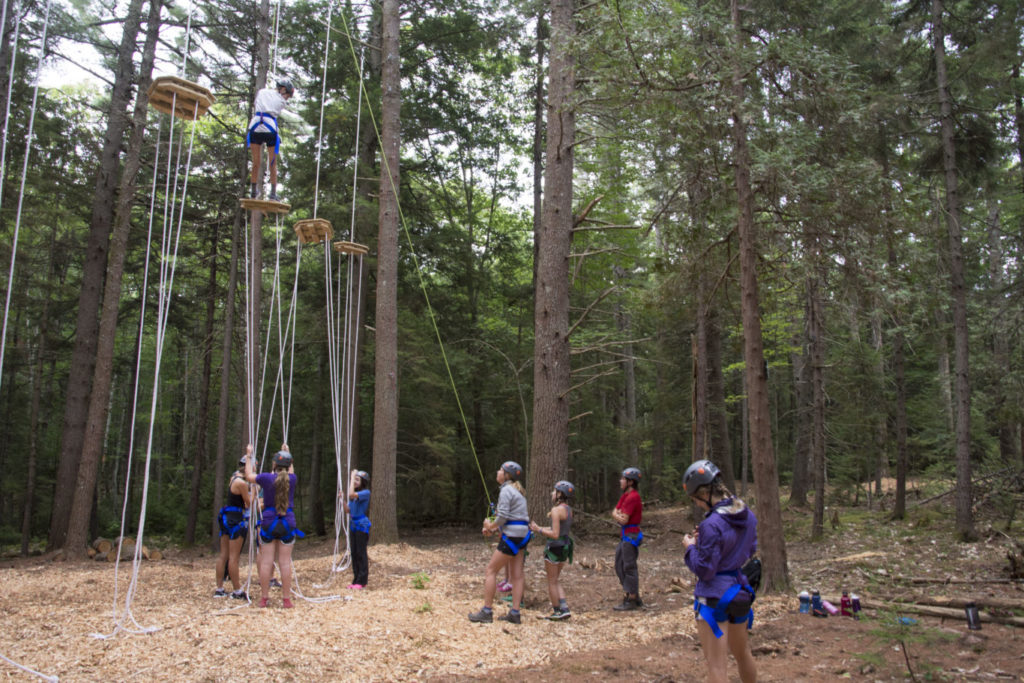
Team-Building
Thriving school communities are sustained when students have confidence, trust, and excellent group communication skills. Outdoor Classroom instructors use a combination of hands-on games, team problem-solving and activities on Chewonki’s Challenge Course to facilitate group bonding throughout the program.
-
- Interactive Games
- Collective and Individual Problem-solving
- Communication Skills & Leadership Exploration
- High & Low Challenge Course Elements
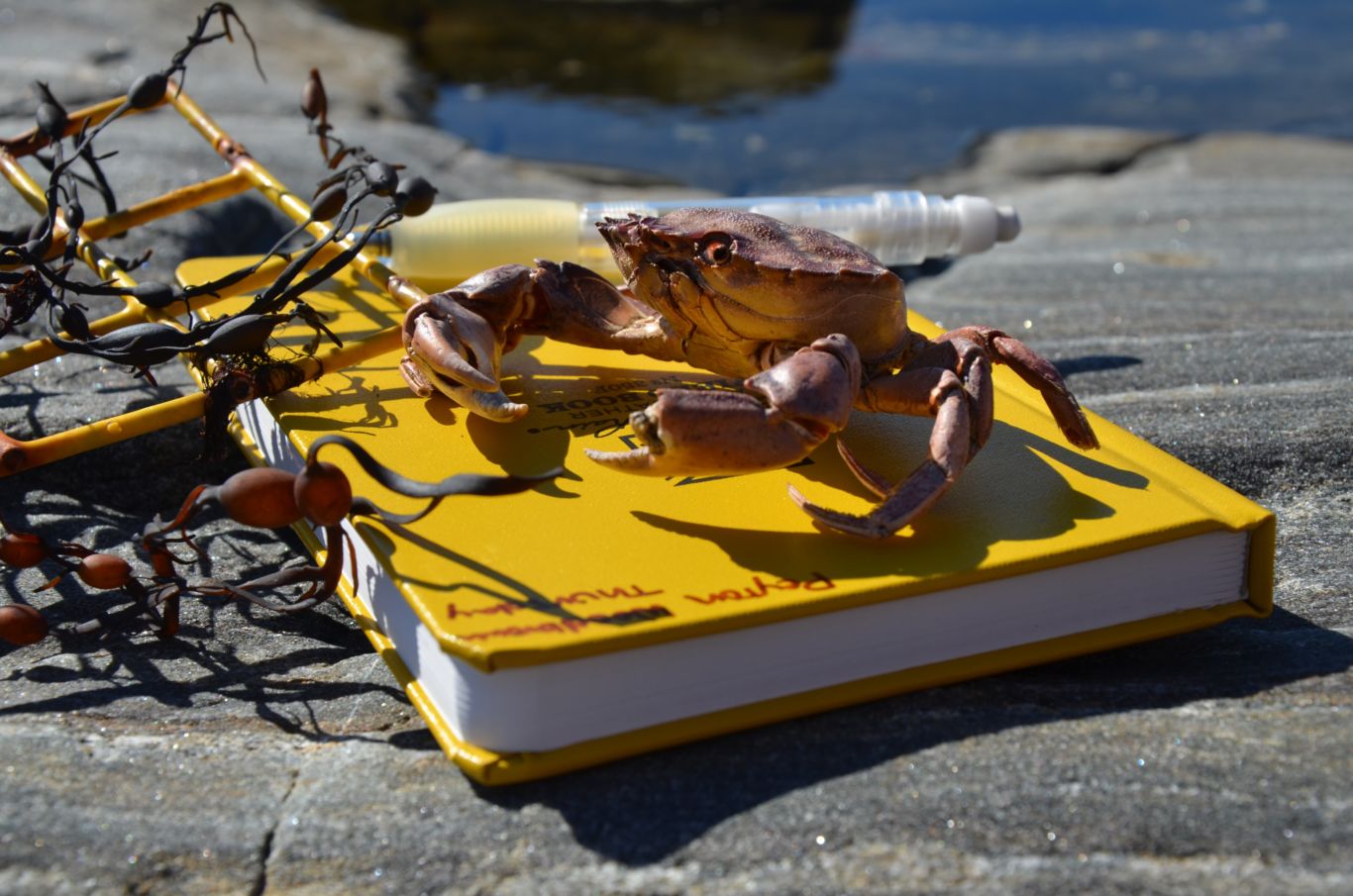
Ecology Lessons
Our instructors provide hands-on ecology lessons, tailored to the needs your group and STEM curriculum. We focus on the pieces, patterns, and processes of each ecosystem, and train students to be great observers and learners in the natural world. Our mix of forest, field, pond, estuary, and rocky shoreline gives us access to several unique habitats for students to explore. Ecological studies in the field create long-lasting memories for students and help ignite a vivid interest in science and the natural world that can’t be matched by textbooks alone.
Ecology Study Options:
-
- Animal study
- Pond study
- Estuary study
- Rocky Shore study
- Owls of Maine & Wildlife Presentations

Farm & Food Systems
Of all the inputs and outputs that sustain a community, few are more interesting or important than the food we eat, and the intricate web of relationships that connect the farm-to-plate. Your students will have the opportunity to tour the fields and pastures, meet the cows, sheep, pigs, chickens, and horse, see, feel, and eat some of the “food & fiber” produced at Chewonki, and learn more about our approach to recycling, reducing food waste, and stewardship of the land.
-
- Organic Farming in Maine
- Farm to Plate Connection
- Food waste, recovery & recycling
Sample 4-Day Itinerary
Day 1
- Arrival at Chewonki’s Center for Environmental Education
- Campus Tour
- Meet Your Instructor
- Icebreaker Games & Activities
- Collect Gear and Travel to Campsite
- Learn to Set up Tents, Chop Firewood
- Campfire Dinner
- Campfire Time
Day 2
- Campfire Breakfast
- Teambuilding on the Challenge Course
- Picnic Lunch
- Estuary Study: Citizen Science Water Quality Testing Unit
- Campcraft & Campfire Dinner
- Campfire & Star Gazing
Day 3
- Campfire Breakfast
- Map & Compass Instruction
- Picnic Lunch
- High Element Group Challenge
- Campfire Dinner
- Live “Owls of Maine” Lesson
- Group Reflection
Day 4
- Campfire Breakfast
- Leave No Trace Campsite Cleanup
- Writing Activity: Personal Certifications
- Picnic Lunch
- Departure
A True Outdoor Living Experience
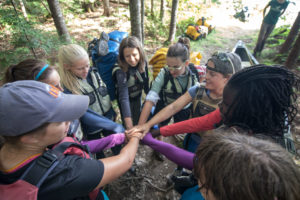 What is truly unique about our program is that rather than house students in cabins or dorms, we use a “basecamp” model which means students are staying in tents at our shoreline campsites. As a group, students process wood and cook each meal over a fire. We truly appreciate the opportunities students have to challenge themselves, have positive experiences in nature, and to build relationships with their peers and teachers.
What is truly unique about our program is that rather than house students in cabins or dorms, we use a “basecamp” model which means students are staying in tents at our shoreline campsites. As a group, students process wood and cook each meal over a fire. We truly appreciate the opportunities students have to challenge themselves, have positive experiences in nature, and to build relationships with their peers and teachers.
The Center for Environmental Education
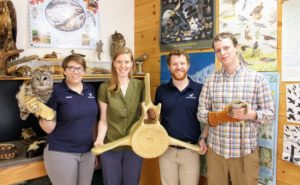 Chewonki’s Center for Environmental Education is also home to our wildlife center, providing students with an intimate look at a variety of live, non-releasable wild animals, including the well-known “Owls of Maine.”
Chewonki’s Center for Environmental Education is also home to our wildlife center, providing students with an intimate look at a variety of live, non-releasable wild animals, including the well-known “Owls of Maine.”
Learn More
For more information about our Environmental Education Basecamps or to book a program for your group, please contact us.

